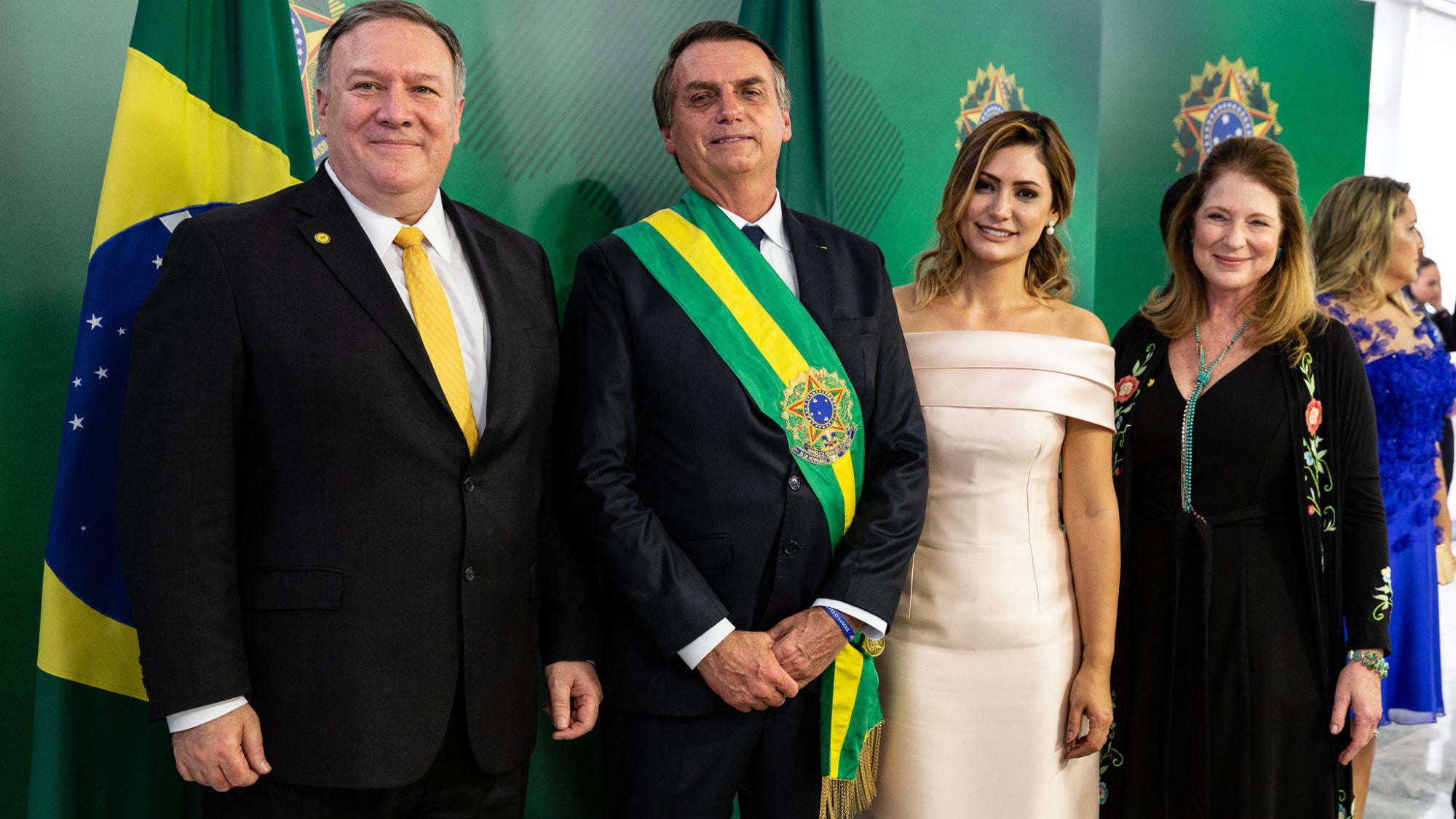
Title: Amb. Sergio Silva do Amaral on Brazil’s Changing Global Role
On January 22, Brazilian Ambassador the United States Sergio Silva do Amaral joined the Georgetown Center for Latin American Studies for its Ambassador Series to discuss the prospects for Brazil during this time of change. Following the event, GJIA sat down with Ambassador Amaral to discuss corruption, U.S.-Brazilian relations, and Brazil’s changing role in the world.
GJIA: With the election of president Bolsonaro, who has received strong support from President Trump, how do you believe Brazil’s relationship with the United States will change? There’s been some talk of shared values; what are the values you believe are shared between the U.S. and Brazil?
SA: I think that for the last two years, U.S.- Brazil relations have been positive; they have expanded into many new areas, especially through the movement of people. Now, I think our relationship can expand even more, because the two presidents realize that they converge and can work together on many issues.
One potential point of cooperation is the Venezuela crisis. How do you think the two countries can work together on this issue?
They are already working together. Both countries were instrumental in the decisions being discussed by the Organization of American States, including the application of democratic laws in Venezuela. They are also working together in the context of Lima Group, as the United States has been invited to participate in some meetings. I think they converge on the need to put pressure on Venezuela so that there can be a peaceful transition to a democratic regime.
Do you think Brazil’s new and growing relationship with China, especially China’s increasing investment in the region, threatens the U.S. hegemony in Latin America that has existed since the Monroe Doctrine?
We don’t see it that way. We believe Brazil has an important complementarity with the Chinese economy, because we have what the Chinese don’t have, which is water and land – that is to say, we have many natural resources, with a very powerful and competitive agro-business. China imports many of these items from us, and that way there is a clear, natural complementarity. Chinese investment in Brazil is also very important, and is often done in partnership with Brazilian companies. I think this relationship is positive for both China and Brazil.
Do you see any pushback from American partners in the private sector and government because of this relationship with China?
No. We don’t believe having good relations with one country has to be a detriment to good relations with other countries. Brazil is a global trading partner. We have very good trade relations with Latin America, the U.S., Europe, Asia, and the Middle East, and we want to maintain these good relations. Trade has no ideological leaning; trade is business. From our point of view, we are open to business with whomever wishes to do business with us.
In the discussion of Brazil’s place on the world stage, you also touched upon the two events that Brazil hosted, the Olympics and the World Cup, and how Brazil didn’t take full advantage of them. Why do you think there was lost potential with those two events?
This was a moment in which the focus of the world was on our country, and I think we should have prepared better to show off what opportunities our country represents. We could have brought journalists to tourist attractions to show the strength of Brazilian industry, like aviation and agro-business; I don’t think we took full advantage of that opportunity. It was a good opportunity to show that Brazil has a strong economy, and we have many touristic attractions. Our people are interesting, too; they do things that charm the world, and we could have showcased that better. We also could have shown off the Amazon, for example, as many people don’t realize its importance. This doesn’t mean that it was not a positive moment for us, because it was, but perhaps in the future we could do more.
You noted in your discussion that there needs to be some sort of balance and oversight in government to ensure that anticorruption is successful in a democracy like Brazil. Could you talk more about that?
There are many, many preconditions for the success of an anticorruption campaign. One of those is the determination of the government to provide the authorities, police, and attorneys with full freedom of investigation. Second is a supportive society, because when you organize an anticorruption campaign, there tends to be a lot of internal resistance, but when 1 million people demonstrate in the streets against corruption, it reinforces the capacity and legitimacy of the authorities to continue their campaign. And the third precondition, which is the most important, is freedom of the press. The press shows common people the extent of corruption and the evil it represents for society.
. . .
Sergio Silva do Amaral currently serves as the Brazilian Ambassador to the United States. He previously served as Ambassador of Brazil to the United Kingdom and France, and as a representative of Brazil at the Bank Advisory Committee, the Paris Club, the World Bank, and the Uruguay Round negotiations. Ambassador Amaral held the position of Chairman of the Brazil-China Business Council, as well as Director of the Center for American Studies at Armando Alvares Penteado Foundation (FAAP) and a member of the Strategic Council of the Industry Federation of São Paulo. He has also held a number of high-level positions in the Brazilian government, including Vice-Minister for the Environment and Spokesman for President Cardoso. He holds a law degree from the University of São Paulo, and a Diploma of Superior Studies in Political Science from the University of Paris I.